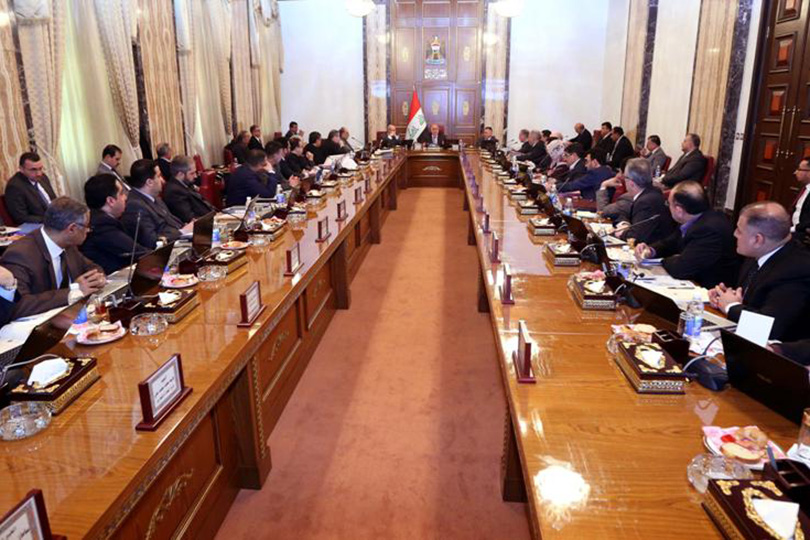Karbala/ Annabaa: Annabaa Forum for Dialogue held its session to discuss the “Scenarios to form the Iraqi government, 2018”, with the participation of a number of social activists, politicians and academicians.
The forum held its sessions on 23-28 May, 2018.
Director of the Forum Ali al-Talaqani chaired the sessions, where the main discussions concentrated on the recent talks among Iraqi political blocs and their priorities to form the new Iraqi government in accordance to their gains and alliances, amid political complications and regional and international pressures.
Dr. Hisham al-Hashimi opened the session pointing that all aspire that the coming government will concentrate on multi-cultures and identities, with respect to religions and national inclinations.
He questioned the coming programs, tools and ministers, if they were having new or renewable visions based on voactionalism, consciousness and culture.
On the satisfaction for the results of the elections, Hamdiya al-Jaf pointed that the elections were completed and accepted the results, though many doubted them.
She expected that the disparity among the winning blocs and entities will be other factors in delaying the formation of the new government.
Social activist Abbas al-Attar pointed that the laws, corruption and constitutional loopholes were among the shortcomings of the political actions in Iraq that necessitated drastic treatment compatible with the volume of the current events.
He elaborated that the “settlement” is born dead that will produce re-conciliatory government without no will and independence, which matter was seen during the past four governmental terms.
Dr. Abdul Hameed al-Sa’ih stressed that the coming ministries should not be financially and influentially chained to political blocs.
On the other hand, Dr. al-Hashimi pointed that the winning bloc should not necessarily form the coming government according to Article 76 of the constitution, which happened with Mr. Iyad Alawi and Mr. Nouri al-Maliki, stressing that the “foreign player will be the main factor to determine the posts”.
He expected, in the light of the close results, that the coming government will “weak”.
MP Noura al-Bachari pointed that the current talks among the blocs concentrated on their gains to form strong alliances, amid complications and regional and international pressures.
She added that Washington wanted the government to be close to its inclinations and interests, away from Tehran’s influences, while Iran is trying to preserve Iraq as its main conflict ground, instead of its territories, in case the USA and other countries thought of war against it.
Dr. Manal Finjan expected that the blocs will respect the time-table to form the government, though in a relative way, pointing that the new government will face internal and external challenges.
“I expected that Premier Haidar al-Ibadi will have a second term or to be a re-conciliatory candidate during these circumstances, thus the government will bear heavy burdens of problems and corruption that cannot be solved drastically or finally”, she elaborated.
MP Abdul Abbas al-Shiya’ said it is difficult to know the form of the coming government, as well its formation, because the blocs did not get a great number of seats, where they can negotiate others on the formation of the government.
“It is difficult to forma a majority government and the whole situation is complicated that needs sacrifices to reach an effective government away from quotations”, he added.
On the other hand, he disclosed that the political situation will not be void of external interference, so the current internal and external visits began to incite the public opinion.
Dr. Mary Kadhim al-Khikani described the 2018 elections as “great disappointment in regard to participation, the functions of the Elections Commission and the selection of the voters”.
He added that the political blocs will not be able to respect the constitutional and legal time-tables without strong pressures, mostly foreign pressures.
M. Jawad Al-Attar questioned how the US-Iranian conflicts will affect the Iraqi political scenes, including the coming formation of the Iraqi government.
“The formation of the Iraqi government is an internal matter, but it is affected by external factors”, he confirmed.
• Annabaa Forum for Dialogue is a non-governmental organization that aims for its seminars to affect the ideas and support the governmental institutions and social organizations, as well as extending advice through its diverse activities.







Comments